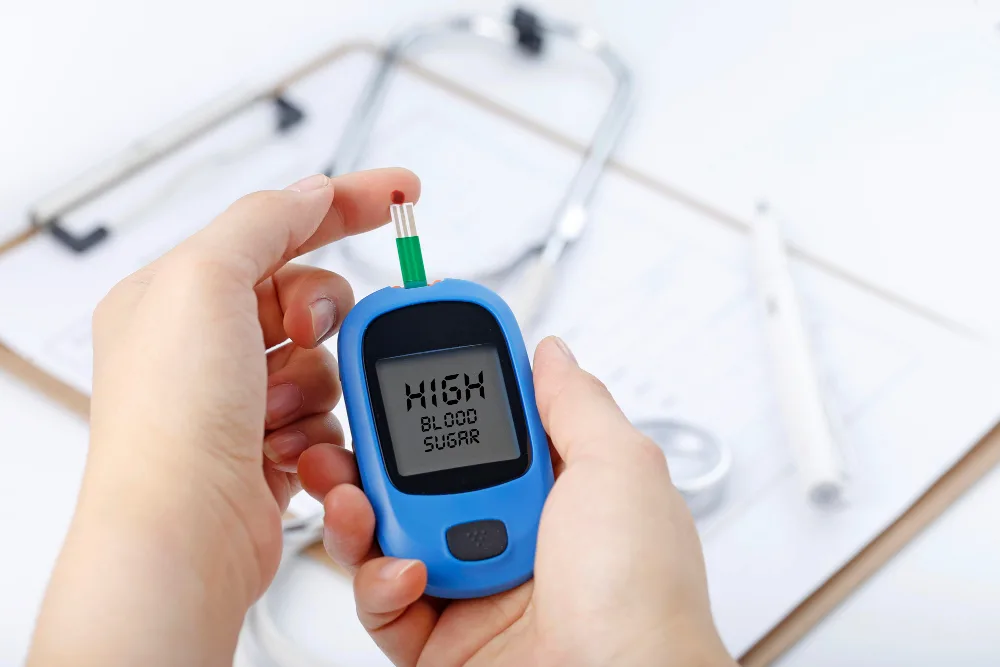A groundbreaking study recently published in The Lancet Regional Health – Europe has shed light on the intricate relationship between ultra-processed food (UPF) consumption and the risk of developing type 2 diabetes. Conducted by researchers from the University of Navarra in Spain, this comprehensive analysis has provided invaluable insights into the potential health implications of our dietary choices.
The study, which spanned over two decades and involved over 19,000 participants, meticulously tracked their dietary habits and health outcomes. By employing rigorous statistical methods and adjusting for various confounding factors, the researchers were able to isolate the effects of UPF consumption on the incidence of type 2 diabetes.
Dr. Maira Bes-Rastrollo, the lead author of the study, emphasized the significance of their findings, stating, “Our research underscores the urgent need to reassess our relationship with ultra-processed foods and prioritize healthier alternatives to safeguard our well-being.”
What they found
The results of the study were both compelling and concerning. The researchers discovered a striking association between higher UPF consumption and an increased risk of developing type 2 diabetes. Specifically, for every 10% increase in the proportion of UPFs in an individual’s diet, the risk of developing type 2 diabetes rose by a staggering 15%.
This finding holds profound implications for public health, as it highlights the potential adverse effects of a diet heavily reliant on UPFs. Dr. Bes-Rastrollo cautioned, “The convenience and palatability of ultra-processed foods have led to their widespread consumption, but our study suggests that this convenience may come at a substantial cost to our metabolic health.”
Causes of the link between ultra-processed foods and Type 2 diabetes
While the study established a clear correlation between UPF consumption and type 2 diabetes risk, the underlying mechanisms behind this link remain an active area of investigation. Researchers have proposed several potential explanations for this association:

- Nutrient Imbalance: UPFs are often formulated with high levels of refined carbohydrates, unhealthy fats, and added sugars, while lacking essential nutrients like fiber, vitamins, and minerals. This nutrient imbalance can contribute to metabolic dysregulation and insulin resistance, increasing the risk of type 2 diabetes.
- Additive and Preservative Effects: Many UPFs contain various additives, emulsifiers, and preservatives to enhance shelf life and palatability. Some of these substances have been linked to inflammation, gut microbiome disruption, and metabolic disturbances, which may increase the risk of developing type 2 diabetes.
- Glycemic Load: UPFs tend to have a higher glycemic load, meaning they can rapidly spike blood sugar levels. Chronic exposure to high glycemic loads can lead to insulin resistance and impaired glucose metabolism, contributing to the development of type 2 diabetes.
- Overconsumption: The highly palatable nature of UPFs, combined with their widespread availability and aggressive marketing, can promote overconsumption and excessive calorie intake. This, in turn, can lead to weight gain, obesity, and an increased risk of developing type 2 diabetes.
A good news
While the study’s findings may seem discouraging, there is a silver lining. The researchers emphasized that even modest reductions in UPF consumption could yield substantial benefits in terms of reducing the risk of type 2 diabetes.
Dr. Bes-Rastrollo highlighted, “Our study suggests that by making simple dietary adjustments and limiting the intake of ultra-processed foods, individuals can significantly lower their risk of developing this debilitating condition.”
UPFs are into nine groups
To better understand the potential impact of different types of UPFs, the researchers categorized them into nine distinct groups:
- Processed Meats: Sausages, hot dogs, and other processed meat products.
- Sugary Beverages: Sodas, fruit drinks, and other sweetened beverages.
- Snacks and Sweets: Chips, cookies, candies, and other processed snack foods.
- Ready-to-Eat Meals: Frozen meals, pre-packaged meals, and other convenience foods.
- Sauces and Condiments: Ketchup, mayonnaise, salad dressings, and other processed sauces.
- Processed Breads: Industrially-produced breads, pastries, and baked goods.
- Processed Dairy Products: Processed cheese, yogurt, and other dairy-based products.
- Processed Cereals: Breakfast cereals, granola bars, and other processed cereal products.
- Other Processed Foods: Any other UPFs not falling into the above categories.
By analyzing the consumption patterns of these nine groups, the researchers aimed to identify potential dietary culprits and provide targeted recommendations for reducing UPF intake.
FAQ
To address common concerns and queries, the researchers have compiled a list of frequently asked questions:
Q: Does this mean I have to completely eliminate UPFs from my diet?
While reducing UPF consumption is recommended, the goal is not necessarily to eliminate them entirely. The key is moderation and balance. Gradually replacing UPFs with minimally processed, nutrient-dense alternatives can significantly lower your risk without depriving yourself of occasional indulgences.
Q: Are all UPFs equally harmful?
Not necessarily. The study found that certain types of UPFs, such as sugary beverages and processed meats, were more strongly associated with an increased risk of type 2 diabetes compared to others. However, it’s important to consider the overall dietary pattern and limit the consumption of UPFs in general.
Q: Can exercise counteract the effects of UPF consumption?
While regular physical activity is essential for overall health and can help manage type 2 diabetes risk, it may not completely offset the negative impacts of excessive UPF consumption. A balanced approach that combines a healthy diet with regular exercise is recommended for optimal results.
Q: Are there any specific recommendations for individuals at high risk of developing type 2 diabetes?
For those with a family history of type 2 diabetes, or other risk factors such as obesity or gestational diabetes, it is particularly crucial to limit UPF consumption and prioritize nutrient-dense, minimally processed foods. It’s important to have regular check-ups and talk to healthcare professionals for advice.
If you’re concerned about your risk of developing type 2 diabetes or want to make positive dietary changes, consider consulting with a registered dietitian or healthcare professional. They can provide personalized guidance and support to help you navigate the complexities of nutrition and disease prevention. Remember, small steps towards reducing ultra-processed food consumption can lead to significant improvements in your overall health and well-being.
In conclusion, the study published in The Lancet Regional Health – Europe highlights the alarming connection between ultra-processed food consumption and the risk of developing type 2 diabetes. Though more research is necessary to fully grasp the underlying causes, the results emphasize the need for a more mindful approach to our diets.
By cutting down on ultra-processed foods and choosing nutrient-rich, minimally processed options, we can take positive steps to lower our risk of this common metabolic disorder and improve our overall health.
